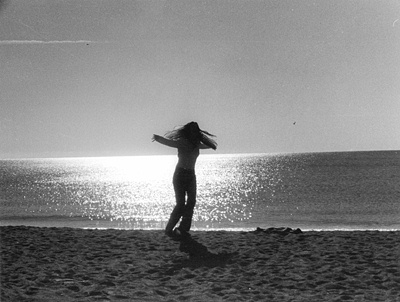All Nonfiction
- Bullying
- Books
- Academic
- Author Interviews
- Celebrity interviews
- College Articles
- College Essays
- Educator of the Year
- Heroes
- Interviews
- Memoir
- Personal Experience
- Sports
- Travel & Culture
All Opinions
- Bullying
- Current Events / Politics
- Discrimination
- Drugs / Alcohol / Smoking
- Entertainment / Celebrities
- Environment
- Love / Relationships
- Movies / Music / TV
- Pop Culture / Trends
- School / College
- Social Issues / Civics
- Spirituality / Religion
- Sports / Hobbies
All Hot Topics
- Bullying
- Community Service
- Environment
- Health
- Letters to the Editor
- Pride & Prejudice
- What Matters
- Back
Summer Guide
- Program Links
- Program Reviews
- Back
College Guide
- College Links
- College Reviews
- College Essays
- College Articles
- Back
The Frivolous Flapper
“Flappers are we, flappers and fly and free. Never too slow, all on the go, petting parties with the smarties, dizzy with dangerous glee. Puritans knock us, because the way we’re clad. Preachers all mock us, because we’re not bad. Most flippant young flappers are we!”- Vincent Youmans describes the perfect female icon of the 1920’s and 1930’s in this poem. Flappers were a new creative social change for women, and their daily lives, style and attitudes were all contributions to an everlasting transformation in history.
After World War I (WWI), it became apparent that the attitudes of the people had been altered. While many men had been transported to Europe to fight, women at home came to fancying the idea of working. This projected them into a new mindset of independence, where they had control of what they wanted, and how to get it. Young, energetic women were propelled into a new lifestyle. These flapper girls had wild reputations, and for exceptional reasons. However at the time it seemed practical; life could end at any moment, so why not make the good times last? Going out alongside men to fulfill their happiness was not uncommon in this era, and the flappers had been forced to push for this social justice. To restate the point, you could say flappers were like baby birds in a nest, popping their heads out to experience a new life of undiscovered freedom.
It was extremely simple identifying the flapper style. Clara Bow was a prime example of a flapper during the time- new, fresh, and fashionable. Her hair was cut short and sleek, and was usually enrobed in a cloche hat (a vintage style hat with cloth that fit to the head and slightly pointed out at the bottom). Shorter dresses with higher hemlines embodied the typical wear for a flapper. These women’s apparel has been described as: “Slim and boyish forms of silk that clung unto her like onion skin,” (Cayton231). Bright lipstick expressed the wild experiences they had in their colorful night lives. A flapper always wore makeup and was known to apply it in public. A cigarette holder is a symbol of the flapper- mischievous and stylish.
“Breezy, slangy, and informal in manner,” (Slosson). This quote describes the daily life of a flapper. A basic day would consist of the following: going to work, attending vaudeville shows (theater movies), dancing at jazz clubs, driving to speakeasies, and flaunting their outfits around town. Their actions were like jazz music: bold, easygoing, and full of energetic rhythm. The reckless rebels were the spirits of the century; songs, literature, and films reflected the endless fun of being a flapper. Betty Boop was an exemplary flapper and a very popular cartoon figure during the time. Her figure was inspired by the frivolity of the young women, particularly Clara Bow. Hotsy-totsy flappers expressed a new advanced social life.
Flappers of the ‘20s and ‘30s left impact on the lasting century and modern society. Independence to women was introduced by the flappers, and today women can virtually do anything men can. We have the power to work, vote, drive cars, and are involved in government. Frolicsome wardrobes and makeup companies were motivated by the style and appearance flappers exhibited. Also, flappers practically created a new language, and some slang phrases may even be recognized still today. For example: The father of the flapper gave his daughter some sugar. She told her fellow friend, “Let’s blouse,” and they rode off in their cake basket to get plastered at speakeasies. Teenagers today may act much like flappers; they are self-sufficient and are always finding way to have entertainment.
The image flappers projected, the actions and rebellions they committed, and their approach to society has been replicated throughout recent history. Politics, fashion, literature, and media have all been prompted by the social upcoming of the flapper. “The playful flapper here we see, the fairest of the fair. She’s not what Grandma used to be, you might say, au contraire,”- (Youmans).

Similar Articles
JOIN THE DISCUSSION
This article has 0 comments.